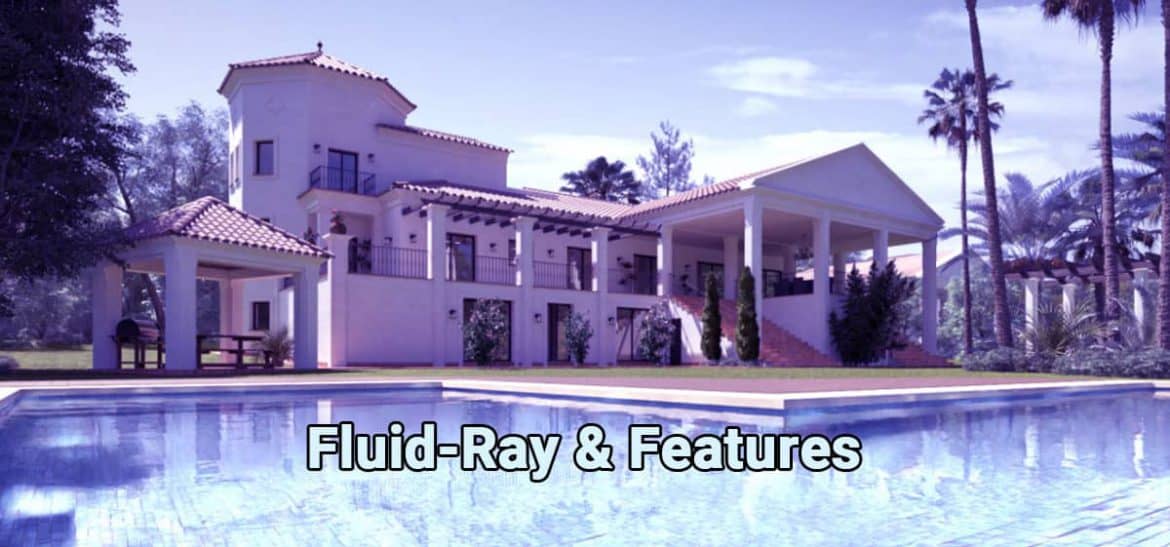Fluid-Ray is a powerful rendering software with an intuitive and forgiving interface. You can drag and drop, convert to sliders, reload live as you work, and more. You can easily create beautiful images from your designs. SketchUp now has a fluid rendering feature called Fluid-Ray.
It is easy and quick to iterate through ideas and changes thanks to the drag-and-drop nature of the UI. On moderate systems, rendering times are fast. Because Fluid-Ray makes use of all the cores and processors available to it, faster rendering will be possible if your hardware is better.
Define SketchUp
Here are a few things you need to know about SketchUp before you start using the plug-ins. Modeling is easy with SketchUp. In addition to the free and pro versions, there are several other versions. Windows and MAC devices both support.
3D models can create using SketchUp in an advanced and detailed manner. Users of any skill level can use it easily, from rookie to professional. The 3D warehouse is a vast library that facilitates design. Anyone can access and use this warehouse of pre-made models. It makes up of users’ models and designs. You can use the plug-ins we have listed below to turn these models into fantastic renders.
Workflow of Fluid-Ray
To demonstrate how easy it is to begin using Fluid-Ray, the company has put together two SketchUp scenes, one interior and one exterior. Fluid-Ray offers an easy method for importing, lighting, and adding materials to SketchUp models to create interior renderings. There is coverage of emissive materials, HDR lighting, and PBR-based material authoring.
Fluid-Ray also enables fast and accurate real-time lighting using AI and Machine Learning. Volumetric, IES light profiles, and the OSL Shading Language supports. Also included with Fluid-Ray are a wide range of PBR materials and the option to create your own.
Features of Fluid-Ray
- A physical subsurface scattering system.
- A thin lens system provides a deep field.
- Simulate accurate spectral radiance based on time of day and location of the sun by using a realistic physical sun and sky model.
- Global illumination will be produced in real-time and perfectly.
- Utilize the ray-tracking capabilities of Intel to perform high-speed rendering.
- The quality of rendering will be superior without the need for tweaking impenetrable terms.
- The following models handle all possible lighting configurations impartially: Bidirectional Path Tracing, Direct Lighting, Path Tracing.
- A sampling of metropolises.
- The occlusion of ambient light is synchronized with the ambient light.
- All system RAM can be used without any restrictions on GPU memory. This functionality allows unlimited triangles and multiple GB of textures to be used in rendering scenes.
Alternative software like Fluid-Ray
V-Ray
The V-Ray rendering plug-in for SketchUp knows a lot more people in the industry standard. According to reports, 92 out of 100 architectural firms rely on it. One downside is the cost and availability of this plug-in. It is not affordable and certainly not suitable for use by amateurs.
The exceptional quality of the photorealistic renders this plug-in can produce & can easily see on some of the gallery shots on the Chaos Groups website. In addition to rendering control, a variety of materials, textures, and asset management, it has a host of other features. Besides exposure and white balance, you can also control other aspects such as adaptive lighting and white balance. When it comes to SketchUp plug-ins, V-Ray is probably the best option.
Wrapping it Up
There has just been a new plug-in released that integrates Fluid-Ray into SketchUp. SketchUp windows version is compatible with this latest 3d modeling application. Directly from inside SketchUp, Fluid-Ray cannot render. Using the Fluid-Ray SketchUp integration plug-in, the users will be able to import scenes, objects, and materials directly from 3D modeling software.


